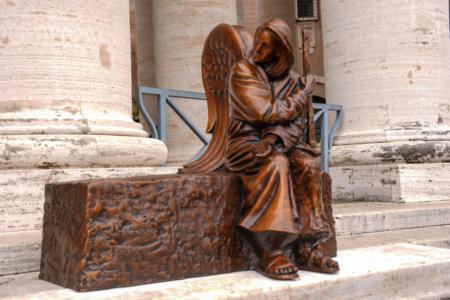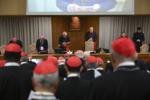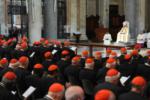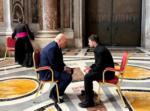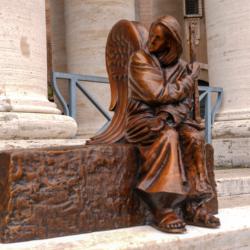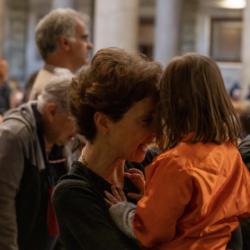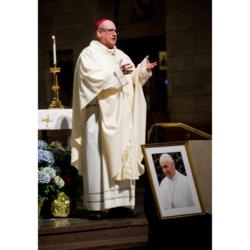Reconfiguration process far from over
With the media’s rush to report the parishes recommended for closure by their cluster, many area Catholics have been led to believe that the final decision on parish reconfiguration has been made. Yet, according to Kathleen Heck, special assistant for the Moderator of the Curia for parish reconfiguration, the process is still in its early stages.
The process began in early February when parish representatives in each of the 80 clusters — a group of neighboring parishes — were asked to meet in order to answer two key questions: If only one parish within the cluster should be closed, which should it be? If more than one parish within the cluster should be closed, which should they be?
Clusters were to finalize and submit their recommendations to the vicar forane of their area by March 8. A vicar forane is a priest who assists a regional bishop in overseeing a group of parishes known as a vicariate. A vicariate may include several clusters. According to Heck, each vicar will now be asked to review the findings of the clusters and include any additional comments they may have, or any correspondence they have received from individual parishes.
Heck anticipates vicars will take about one week to complete their review.
The vicars will then, in turn, submit their findings, together with the cluster’s recommendations, to their regional bishop. The bishop, too, will be invited to add his comments and viewpoints to the cluster’s findings.
Once the regional bishops have reviewed the materials, they will pass them on to Bishop Richard Lennon, Moderator of the Curia and Vicar General, who will convene the Central Committee for Reconfiguration — a 20-member organization made up of priests, laity and archdiocesan officials that will provide oversight of the process and advice to Archbishop Seán P. O’Malley.
"The central committee can challenge, endorse, review or change any of the parish recommendations as they see necessary," stated Heck.
Once the central committee finalizes their recommendations, they will present their findings to Archbishop O’Malley, who will make the final decision on reconfiguration.
"Archbishop O'Malley, once he has made the ultimate decision, will present it to the Presbyteral Council," who will be able to counsel and advise the archbishop, "though the final decision is ultimately up to him," Heck continued.
Once the entire process has been carried out, Archbishop O’Malley will announce the final decision. Archdiocesan spokesperson Father Christopher Coyne said he hopes this will occur during the final weeks of May.
The parishes to be closed will be given a timeframe of eight, 12 or 16 weeks — depending on the circumstances of the individual parish — to complete the process.
The current reconfiguration process differs from the plan originally envisioned by the archdiocese and announced by Archbishop O’Malley in a Dec. 16 address to the priests of the archdiocese. The original plan called for a staggered announcement of closures in June, August and October.
The process was changed in response to priests’ concerns that delayed announcements could cause difficulty in parish planning, such as scheduling weddings, hiring staff or enrolling children in religious education programs.
